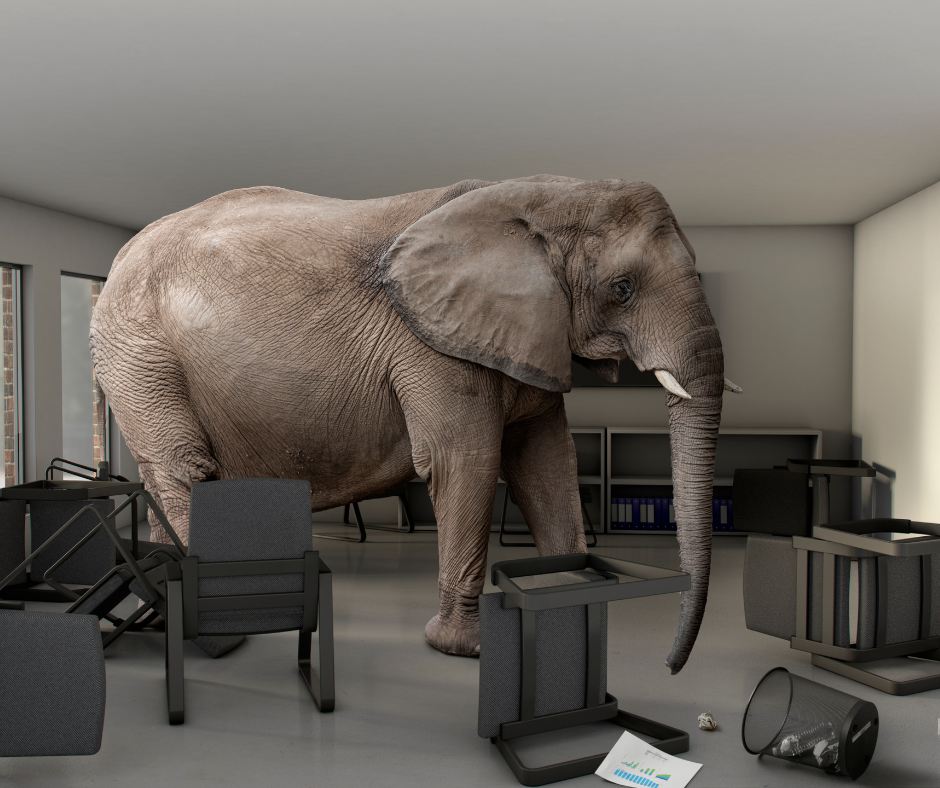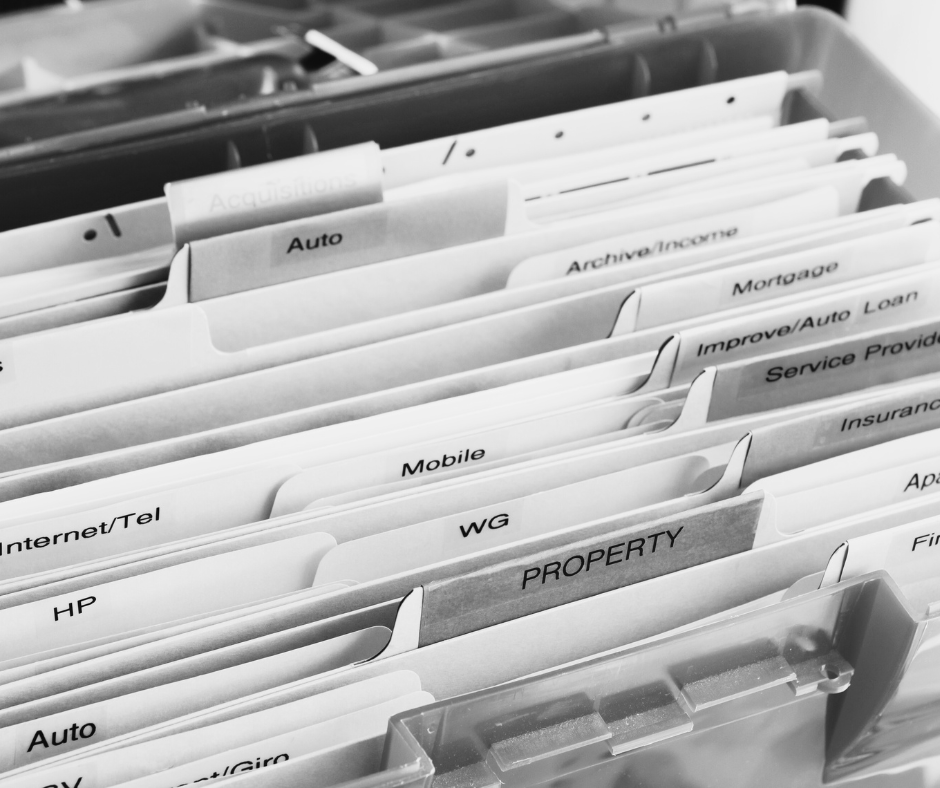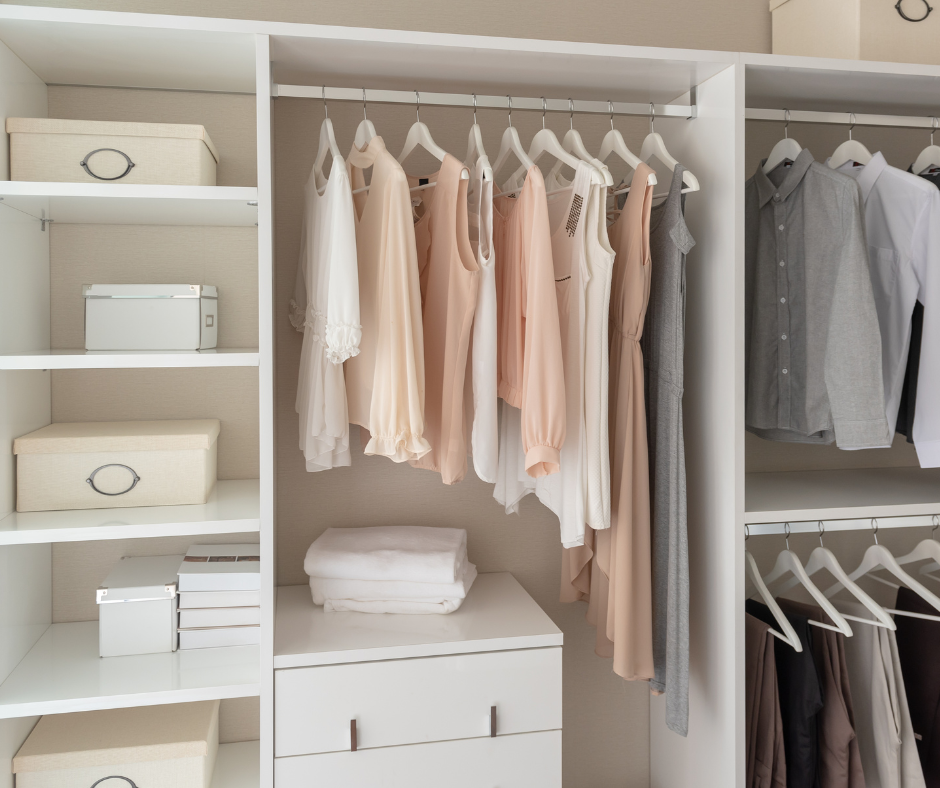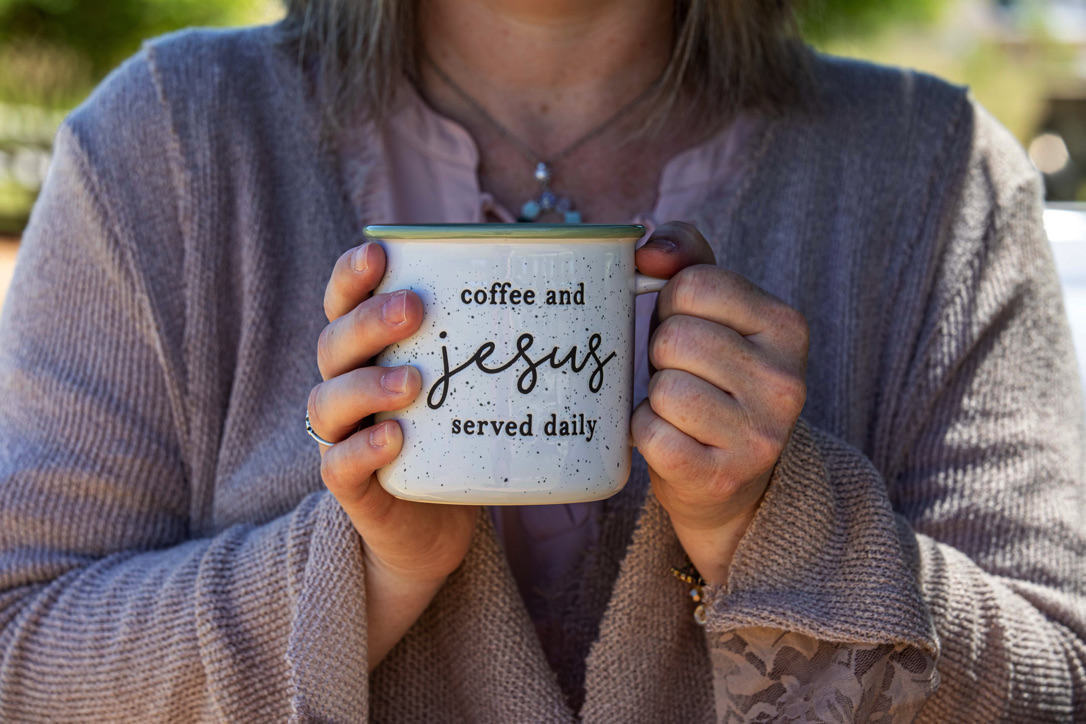Is clutter keeping you from enjoying your home and your relationships? Do you feel overwhelmed by all the stuff that seems to have piled up in your house? Does the thought of cleaning make you tired before you’ve even started?
If you answered yes to either of the above, I’ve got you! In this post, I’ll share:
- Why we tend to hold onto clutter
- Questions to ask yourself when you want to keep it all
- Why simplicity is better than holding onto stuff
- Simple steps to cleaning out the clutter
- Questions to ask yourself when you are purging your spaces
- Where you can sell your stuff and relieve some spending guilt
- Where you can donate your stuff and make a difference in someone else’s life
Let’s get started!
Why We Tend To Hold Onto Clutter
Which of these sounds like you?
“I hold onto _________ because I remember when … and I love that memory.”
“I hold onto _________ because if I let it go, I feel like I’m letting go of a significant part of who I am.”
“I hold onto _________ because I’m afraid I’ll forget _________ if I let it go.”
“I hold onto _________ because I find comfort in having it close.” (Stuffed animals is a great example of this.)
“I hold onto _________ because I’ve already lost so much.”
“I hold onto _________ because if I let it go, I have to face the trauma I’ve experienced, and that’s too much for me to handle right now.”
“I hold onto _________ because my mom/dad/grandma held onto the same things.”
“I hold onto _________ because I might need it some day.”
“I hold onto _________ because when I lose the weight, they’ll fit again.”
“I hold onto _________ because I’m anticipating WWIII and I know I won’t be able to get it if that happens.”
“I hold onto _________ because I get overwhelmed when I look into that closet/room/attic/garage.”
There are many reasons we hold onto our things. If you look at the list above, you’ll notice they’re all attached to an emotion we have, an ideal we have, or our own behaviors and experiences.
The first step to decluttering your home is to declutter your mind.
Do a self analysis. WHY are you holding onto the things you aren’t letting go of? Why don’t you want to throw that trash away? Why don’t you want to clean out that closet? Why don’t you want to choose one or two stuffed animals/purses/jackets/pots, etc. and give the rest to a local thrift store? What is holding you captive in your clutter?
Here are a few more questions to ask yourself:
“Can I buy a new one at a later date if I get rid of this one now?”
“Will I really be losing a piece of who I am, or am I just the equivalency of this stuff?”
“Is my clutter a crutch for something deeper than I need to deal with? Wouldn’t therapy be a better option than holding onto material junk?”
“Do I hide in my clutter rather than work to mend estranged relationships?”
“Does this stuff really protect me from someone toxic or dangerous?”
“Am I using material things for comfort instead of taking my pain to the Lord, who can heal me if I allow Him to?”
“What’s one thing I will be able to do that I can’t right now because I’m too busy managing my clutter?”
“What will my life look like if I accomplish my goal of simplifying?”
“What will my life look like if I avoid my goal of simplifying?”

Why Simplicity Is Better Than Holding Onto Clutter
First, let’s look at the spiritual aspect of our overstuffed houses, hearts, and minds.
Are you putting your stuff before God in your life? Has your stuff become an idol in your mind and heart?
Here’s a quick way to tell: If you can’t give up that pair of jeans because you think you’ll fit back into them one day or you’re worried you’ll need them if the world takes a turn for the worse, you’re not trusting God to provide for you in those instances. You’re trusting in your stuff to be your provision. Now, that’s not to say that you shouldn’t be prepared for worst-case scenarios. But you also shouldn’t be hoarding out of fear.
Clutter takes up space in your life that could be taken up by time in the Word or playing a game with your family. It’s become a distraction from what matters most. Relationship. With God. With your family. It’s become an idol.
Have you ever taken a Sunday to clean your house instead of attending church? Maybe you got so busy during the week that you just didn’t have time to clean, and now it’s bothering you to look at the mess your house has become. So, you “take Sunday off” and clean your home so you can have peace of mind and heart. Has your busy schedule and your desire for a peace that will likely last less than twenty-four hours just superseded God’s commands to: a) put Him first above all else, b) not forsake the fellowship of others, and c) keep holy the Sabbath?
Please know I’m preaching to myself here, too. You’re not the only one.
Simplicity allows for so much space in our life to be filled with the things that matter most: And you shall love the Lord your God with all your heart, with all your soul, with all your mind, and with all your strength.’ This is the first commandment. And the second, like it, is this: ‘You shall love your neighbor as yourself.’ There is no other commandment greater than these” (Mark 12:30-31, NKJV). Let’s break this verse down.
First, we are commanded to love the Lord, our God, with all our heart, soul, mind, and strength. The question is, when our lives are cluttered with emotional baggage, traumatic experiences, packed schedules, overwhelming tasks, and overflowing closets, how are we to achieve this command from our Father? Hint: We can’t. Our clutter takes our focus off of God and puts it on ourselves and the things that weigh us down, zapping us of our strength. This is also known as idolatry, this putting anything else above God in our hearts.
Second, we are commanded to “love your neighbor as yourself.” When our lives are full of all this clutter, do we truly love ourselves? Are we running through the fast-food drive-thru to pick up dinner, knowing we’re too lazy or too busy to cook a healthy meal at home that we should be enjoying with our family gathered around a table? The likelihood is that we don’t love our current weight, diabetes or hypertension, or how run down we feel as a result of eating like this. Not to mention the emotional suck and mental fog that ensues as a result of our personal choices.
Again, I’m right there with you.
I think it’s time we purge some clutter from our lives and give ourselves a deposit of time in our day to focus on what matters most in life. Don’t you?
Simple Steps to Cleaning Out the Clutter
Step One: Choose one room or one space in one room to start.
Start small. Don’t look at the big picture. That will just overwhelm you, and your brain will turn off your willpower to make simplicity happen. Look at a small, focused area. Remember, to walk a mile, you take one step at a time.
Step Two: Throw away all the trash in that area.
You don’t need to keep all the receipts unless you need to balance your bank account or file them for tax purposes, in which case, those tasks need to be added to your to-do list. You don’t need to keep all the takeout containers or deli containers. You’re likely to have more next week.
Step Three: Put the dirty dishes in the kitchen and the dirty laundry in the laundry room.
Don’t get distracted. Get right back to the area you’re working on. The rest will still be there when you’re finished with this one area.
Step Four: Sort and Organize.
Start making piles.
For example, if you’re in your bedroom closet, hang all your clothes according to item (i.e., T-shirts, dress shirts, sweaters, pants, skirts, dresses …). You may even want to hang them by color per item. Now you have an idea of what you have.
As another example, if you’re in your dining room or home office, sort your paperwork according to purpose (i.e., medical, household, school/education, business …). Create a file for each, using file folders or bins, and place them in a filing cabinet or drawer or on a bookshelf. Now you are only looking at a small, gathered system rather than a mountain of papers strewn across a table, desk, or floor.
Do this with every item in the area you’ve chosen to work with until you’re finished.
Step Five: Move to the next area, and repeat steps one through four.
Step Six: Note your accomplishments for the day.
Have a favorite drink or soak in the tub. Whatever relaxes you (except shopping), take a few moments to acknowledge that you’ve done something to work toward an important goal, and enjoy it.

It’s time to purge!
Once you have moved through every area of a room or each room in your house and completed steps one through five, it’s time to begin the clutter purge. Follow the steps below to begin simplifying your home:
Step One: Gather bins and boxes.
You’re going to need three main categories to sort into. 1. Keep 2. Donate or Sell 3. Toss
You may have an additional category of “Come Back To,” so long as you don’t abuse it.
You’ll want to gather enough boxes and/or bins to sort each area of your room or each room in your home. Label them with your categories, and place them in the middle of the floor.
Step Two: Choose one type of item or area to sort and begin sorting.
Again, start small. Especially if you know you’re emotionally attached to that type of item. Use your bins and sort the items into them. The first two categories are self-explanatory. Toss means any item that is in less than fair shape, meaning it has holes, tears, stains, is broken beyond repair or use, or has no real value. Please note that unless they are brand new in their original packaging, socks and underwear are not saleable. You also probably want to toss used makeup.
Step Three: Organize.
When you’re finished sorting, place your keep items where they belong in your area. For example, put books on the bookshelf, clothes in the closet or dresser, jewelry in the jewelry box, etc.
Step Four: Return to the Questionable Items
Ask yourself the questions from the “Questions to Ask Yourself” section below and make your final decisions. Put the items in their respective places.
Step Four: Consolidate.
As you go through the area you’re working on, you’ll want to consolidate your boxes and bins accordingly. Combine all your Donate/Sell items into one bin or box until it’s full, then start another.
Step Five: Repeat until you are finished.
Step Six: Note Your Accomplishments for the Day
Have a favorite drink or soak in the tub. Whatever relaxes you (except shopping), take a few moments to acknowledge that you’ve done something to work toward an important goal, and enjoy it.
NOTE: Unless you are a hoarder, you should be able to get through a room in your home within a couple of days. Give yourself a week if you need to. I come home from work and dedicate one hour to an area per evening. Then I use an entire Saturday to finish the task at hand. Sundays are for rest.
Questions to Ask Yourself When You Are Purging Your Spaces
Just in case the questions you asked yourself at the beginning of this post weren’t enough to help you simplify your home by getting rid of your clutter, here are more to ask when you’re facing that mountain of stuff you need to sort:
“When is the last time I used this?” If it is more than two years, sell or donate it.
“Will I use this again in the next year?” If not, sell or donate it.
“Does this item truly bring me joy?” If not, you don’t need to keep it.
“Do I truthfully like this item?” If not, you don’t need to keep it.
“Does this item fit me right now?” If not, sell or donate it.
“How many of this item do I truly need?” Only keep as many as you truly need. Sell or donate the rest.
“Do I have more than one item related to this memory?” Keep the one or two that mean the most. Get rid of the rest.
“Was this a major part of my childhood or my child’s childhood? Did it truly matter to me or my child?” If not, sell or donate it.
“Which do I need more in this moment? Money or the item I’m holding?” Sell it.
“Which do I need more in this moment? Peace and sanity or the item I’m holding?” Donate it.

Removing the Mountain from Your Home (& Your Life)
Sometimes it’s difficult to let go of things because we harbor guilt. It sounds like this:
“I just bought this last week.”
“I overspent my budget.”
“My mother/aunt/friend/sister bought me this. I don’t want to offend her by getting rid of it.”
“I knew it didn’t fit, but I bought it anyway.”
“I bought this for so-and-so but never gave it to them.”
“My child/parent/spouse is gone, and if I get rid of this, I’m going to lose him/her all over again.”
These thoughts can be debilitating, to say the least. Having to purge an item or a room full of belongings that hold specific meaning and memories can be a daunting task.
But what if we reframed the thought?
When my 19-year-old son died in a car accident, I decided to bless his siblings, cousins, and friends with some of his belongings. Each one got to choose from his Lego collection and his clothing. We kept his acoustic guitar, his cowboy boots and hat, and a few smaller belongings that held sentimental value (and fit inside his toolbox). The rest went to the local thrift store or in the trash, depending on its value.
Below are nine more ideas on how to purge your home of your sell/donate items:
- Have an Auction or an Estate Sale. This is a good process to use if you have a lot of valuable items or are trying to downsize to move into a smaller home. You may wish to hire an estate sale company to assist with this, as they will be able to help you accurately charge for your antiques.
- Have a Yard Sale. Choose a weekend, make some signs, post online in your local community groups on social media, and put price tags on your items. Invite friends and family to join you and make it a multi-family sale. Or watch for your local community yard sale to come around this year.
- Sell at the Local Flea Market. Tables are usually fairly reasonable to rent. You’ll get more foot traffic than your typical yard sale, providing you are there on a busy weekend. Try to ask other vendors which weekends are the best for traffic.
- Sell on Facebook Marketplace. This works very well for furniture, brand name shoes and clothing, books, seasonal items, jewelry, sports and fitness equipment, appliances, plants, tools, trending toys, baby items, electronics, instruments, and vehicles. Beware of scammers if you choose to use this outlet.
- Sell on eBay. This works very well for electronics, home products, clothing and shoes, accessories, sporting goods, car parts and accessories, pet supplies, collectibles, and handcrafted items. Be sure to research how to best price your items and charge for shipping on eBay. I’ve made some money selling on this platform, but I’ve also lost some money. Books with collectible and out-of-print covers sell well here, by the way.
- Sell to a Consignment Store. This is a good route to go if you have a lot of brand name clothing, shoes, and accessories that are currently trending.
- Donate to your local children’s, women’s, and homeless shelters. When my daughter was eight years old and didn’t want to clean her room, I warned her that if she didn’t have it finished by the next morning, I was going to gather up whatever was left out and give it away. She learned the next day that Mom wasn’t playing. I rounded up an entire 30-gallon tote of Barbie items and donated them to a local women’s shelter, where girls valued what they had enough to clean up when they finished playing.
- Donate to a local thrift shop that serves its community. I’m not talking about your typical Goodwill here. Do some research and find a local thrift store that donates from its proceeds to help a local charitable organization. I know of at least a handful in my local area that do this.
- Bless someone you know has a need. Has a local family just lost everything in a fire? Has a father just lost a job? Has someone’s lawn mower recently broken? Find a family member, friend, or neighbor who needs what you’re purging. Love your neighbor as yourself and pass it on to them.
Once you’ve simplified your home, I hope you’re able to breathe a sigh of relief, enjoy some time with your family, and make it to church on Sunday. If you have any other tips on removing clutter from your home and your life, I’d love to hear them in the comments below!













0 Comments